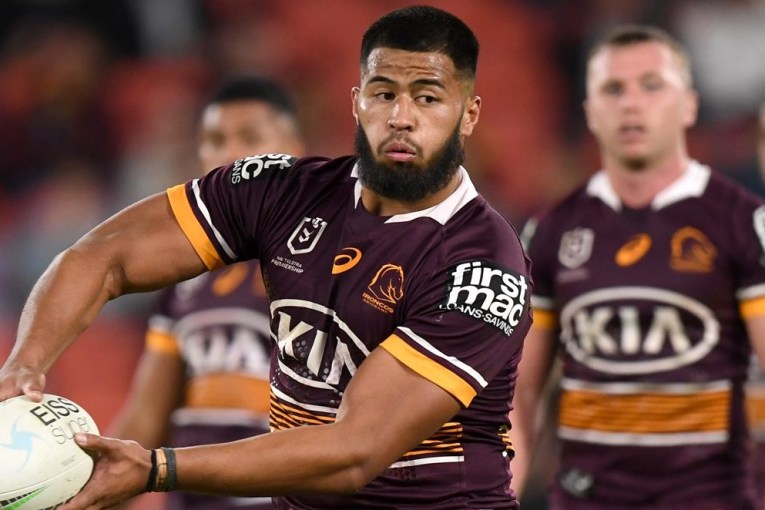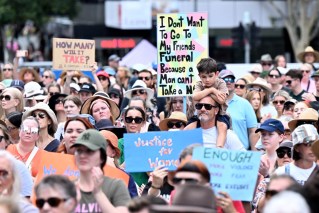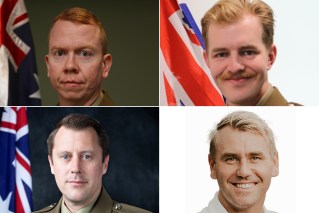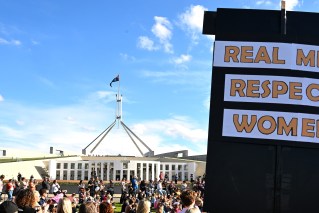Cutting edge: How robot training facility is turning doctors into brain surgeons
Specialist doctors from across the Asia-Pacific region will train in artificial intelligence and robotics at a unique new facility on the Gold Coast that aims to pioneer new ways to remotely treat cardiovascular disease to stroke, cancer, and spine conditions.

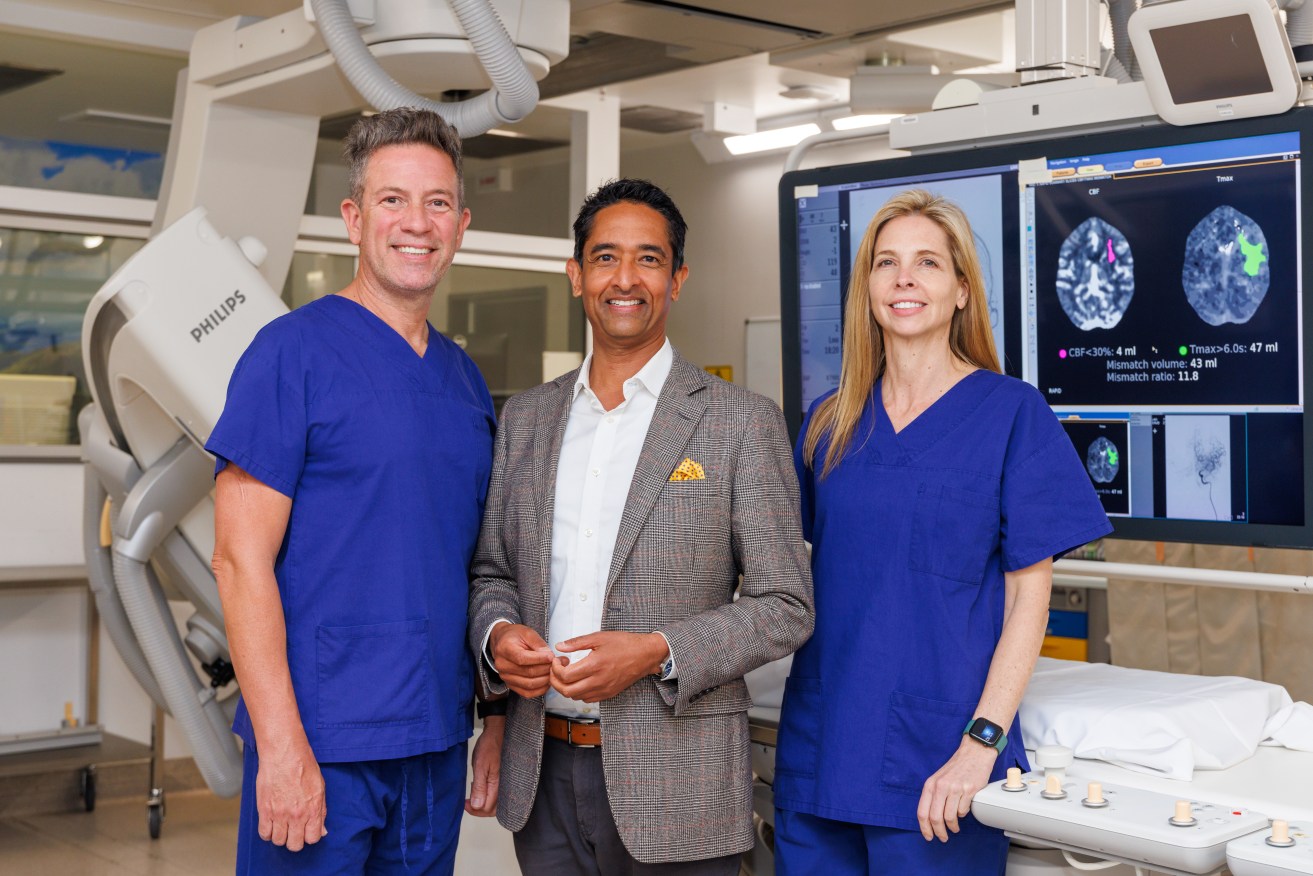
In the operating theatre, from left: Dr Hal Rice, Dr Atul Gupta from Philips, Dr Laetitia de Villiers). (Image: Supplied)
The cutting-edge research and training centre will be based at the Gold Coast Health and Knowledge Precinct, which was the site of the athlete’s village for the Gold Coast 2018 Commonwealth Games, and is a world-first set up that gives doctors the chance to exclusively train outside a hectic hospital environment.
It means doctors will be trained in cutting-edge “image-guided therapy technology” that will increase the number of specialists in the region who can use robotics and AI to operate on patients anywhere in the world.
Led by interventional neuroradiologists Dr Hal Rice and Dr Laetitia de Villiers, who specialise in treating stroke and brain aneurysms at Gold Coast University Hospital, the pilot facility has partnered with global healthcare technology provider Philips that is based in the Netherlands.
Rice, who performed the world’s first robotic neurovascular stroke clot removal, said Philips would equip the centre with the latest technology, which along with leading Gold Coast-based physicians, would help develop new precision treatments and train more doctors that could perform them.
“This dedicated facility will have the latest equipment and space to accommodate larger groups, without the constraints of prioritising patient care within a busy hospital environment,” Rice said.
“Importantly we’ll be able to expand our research and development in the neurovascular field, while broadening training in other surgical specialties, widely utilising 3D printed models to revolutionise training and looking to a future where AI and robotics will enable remote procedures, virtually anywhere in the world.”
de Villiers said the new centre would feature live links to theatre suites so doctors could watch live complex procedures and then replicate them on 3D models.
“They will be able to practice on exact 3D printed replica models of the brain blood vessels of patients whose procedures they have just watched us undertake, utilising the state-of-the-art Philips image guidance system,” de Villiers said.
“They will also be able to rehearse their own patient cases on personalised patient models that accurately simulate the feeling of pulsing blood, that we can 3D print in advance of training, and we can guide them through these difficult procedures.”
Philips’ Chief Medical Officer for Image Guided Therapy, Dr Atul Gupta, said the facility would speed up new treatments and improve outcomes for patients with neurological conditions such as stroke and cerebral aneurysms.
“We are very excited to collaborate with leading physicians and contribute to innovative developments in diagnosis and treatment. Together we can further optimise the clinical workflow, remove the hurdles to faster, more decisive treatment, and improve neurologic outcomes,” Gupta said.
